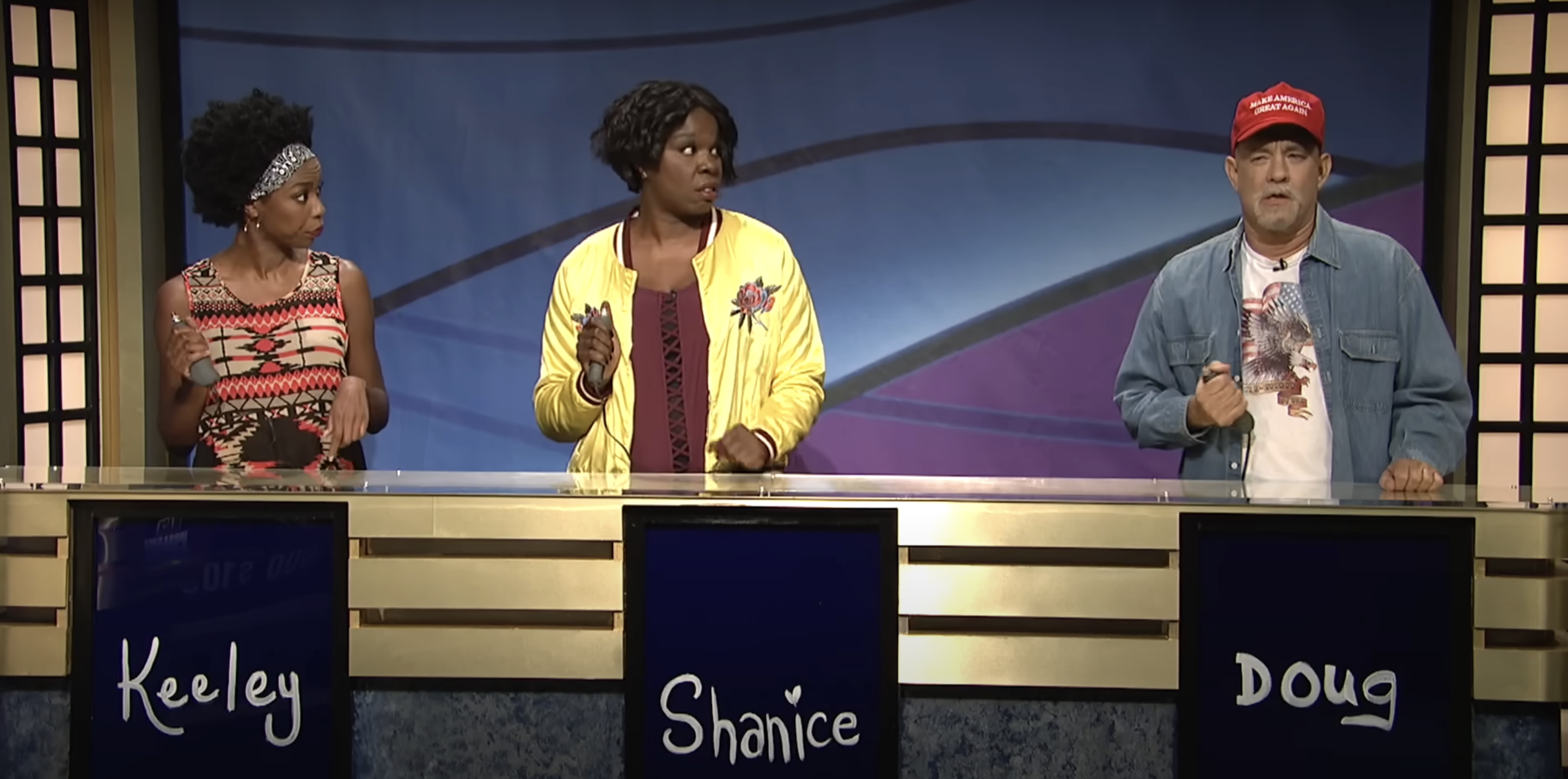In a 2016 Saturday Night Live sketch Tom Hanks appeared as "Doug," a MAGA-hat wearing Trump supporter on the gameshow Black Jeopardy. It's one of the best sketches SNL has done in the past decade. Over the course of five minutes, it becomes increasingly apparent that the white working class Doug and the show's regular Afro-American contestants actually have much more in common than is often acknowledged or realized. Or, at least, that is until the Final Jeopardy category comes up: "Lives That Matter."
Login to read more
Sign in or create a free account to access Subscriber-only content.
Topics:
